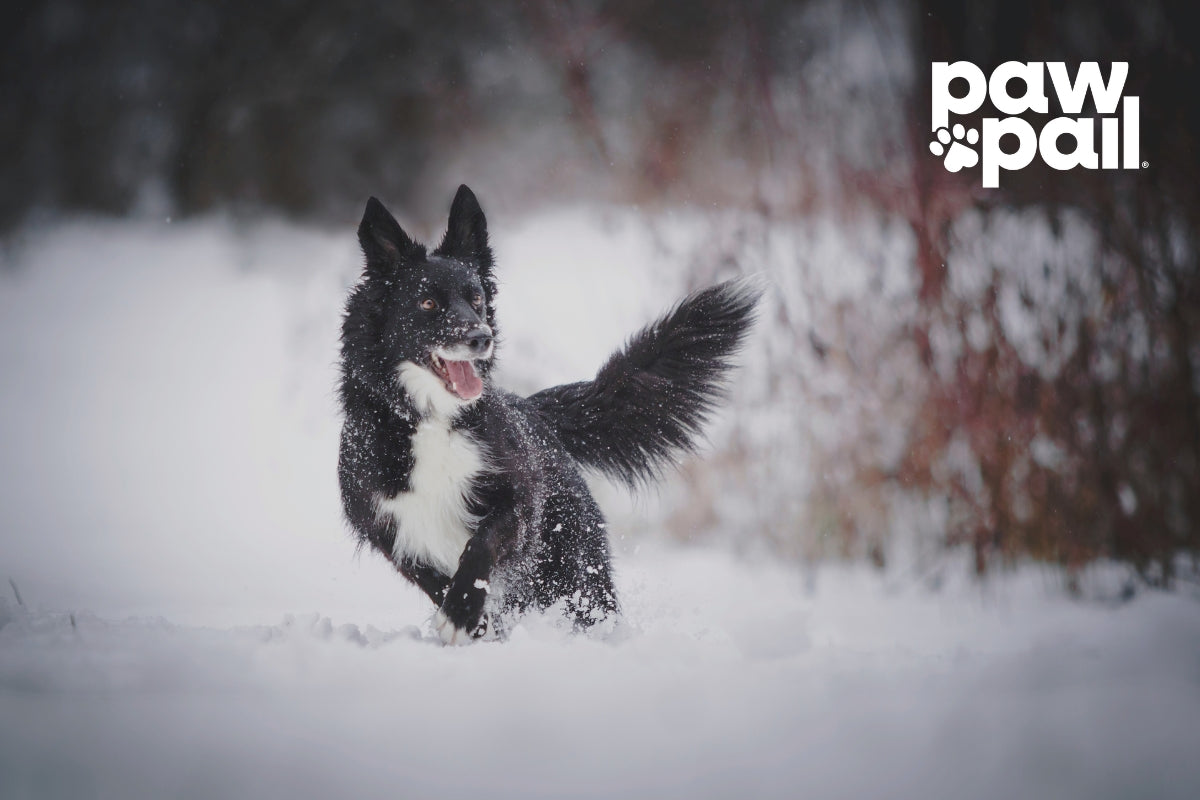Spotting red in your dog's poop is naturally alarming for any pet owner. While a distressing sight, understanding the nuances of bloody stool can help you discern the potential severity and guide your next steps. The presence of blood, whether bright red or dark and tarry, is a clear signal from your dog's body that something isn't right within their digestive system.
Bright Red vs. Dark Blood
The color of the blood in your dog's stool provides a crucial clue about its origin.
Bright red blood, often referred to as hematochezia, indicates fresh, undigested blood. This typically suggests the bleeding is occurring in the lower parts of the gastrointestinal tract, such as the colon, rectum, or anus. You might see it as distinct streaks on the outside of the stool, mixed in with the feces, or occasionally as noticeable clots. While it demands attention, hematochezia can sometimes stem from less severe, though still important, issues.
In contrast, dark red, tarry, or black stool, known as melena, is generally a more serious indicator. This appearance means the blood has been digested, implying the bleeding is occurring higher up in the digestive tract, usually in the stomach or small intestine. The blood undergoes chemical changes during its journey, turning it a dark, often shiny, tar-like black, and the consistency can be quite sticky. Melena always warrants immediate veterinary attention, as it signifies potentially significant internal bleeding.
Common Causes of Bright Red Dog Poop
Bright red blood in your dog's stool typically originates from the lower digestive system. Often, the cause is as simple as dietary indiscretion – your dog eating something they shouldn't, or a sudden change in diet irritating their intestines.
Colitis, or inflammation of the colon, is a frequent culprit, leading to frequent, small stools with mucus and blood. Intestinal parasites like hookworms, whipworms, Giardia, or Coccidia are also notorious for irritating the gut and causing bleeding.
Anal gland problems, such as impaction or infection, can cause visible blood around the anus or on the stool. Minor rectal or anal trauma from straining or passing a sharp object can also result in fresh blood.
Bacterial or viral infections, including serious ones like Parvovirus (especially in puppies), can inflame the intestinal lining and cause bloody diarrhea. Even stress and anxiety or food allergies/intolerances can trigger gastrointestinal upset, leading to blood in the stool. Less commonly, certain medications (like NSAIDs) or growths like polyps and tumors can cause bleeding in the lower tract.
Serious Causes of Red or Black Dog Poop
While dark, tarry, or black stool (melena) nearly always signals a serious problem, some conditions can cause either bright red or dark blood depending on the bleeding's location and severity.
One very alarming condition is Hemorrhagic Gastroenteritis (HGE), a sudden, severe illness with profuse, often "raspberry jam-like" bloody diarrhea and vomiting, which can quickly lead to dehydration and shock. Ingesting a foreign object, especially something sharp, can cause internal damage or blockages, leading to significant bleeding.
Gastrointestinal ulcers, open sores in the stomach or small intestine, bleed continuously, resulting in melena. These can stem from medications, severe stress, or underlying organ diseases. Blood clotting disorders, or coagulopathies, are also critical; these can be caused by conditions like rodenticide poisoning, where the blood can't clot properly, or other immune-mediated or liver diseases. Finally, advanced organ diseases (liver, kidney, pancreatitis) and cancer in the digestive tract can also lead to serious internal bleeding.
When to Seek Veterinary Care
The golden rule is straightforward: always contact your veterinarian if you observe blood in your dog's poop. Even a small streak of bright red blood, even if your dog seems otherwise fine, warrants a professional opinion.
However, certain accompanying symptoms demand immediate emergency veterinary attention. Those include any presence of dark, tarry, or black stools (melena), large amounts of blood or continuous bleeding, as well as persistent vomiting. Other symptoms include profuse and uncontrollable diarrhea, signs of lethargy, loss of appetite, or even a refusal to drink water. Pale gums can indicate significant blood loss or shock, and other serious symptoms requiring veterinary care are any neurological symptoms like tremors, seizures, or disorientation.
Before you head to the vet, try to stay calm. Observe your dog's overall behavior and note down the specifics of the stool and any other symptoms. If possible and safe, collect a fresh stool sample in a clean container, as your vet will likely want to examine it. Also, consider anything unusual your dog might have eaten recently. Never attempt to give your dog human medications without explicit veterinary guidance.
Your veterinarian will conduct a thorough examination and recommend diagnostic tests, which may range from fecal exams and blood work to X-rays or ultrasound, to pinpoint the underlying cause and initiate the most appropriate treatment. Recognizing the signs and acting swiftly can make all the difference in your beloved companion's recovery.
Always Monitor, Always Be Prepared
Observing red dog poop is a clear signal that your dog needs veterinary attention. Whether it's bright red or dark and tarry, blood in the stool always warrants a call to your vet for proper diagnosis and treatment. Prompt action can prevent minor issues from escalating and help address serious conditions effectively, ensuring your beloved companion gets the care they need.
While your focus is rightly on your dog's health, managing their waste is a daily reality. For cleaner, easier disposal of all types of dog poop, consider the Paw Pail. It helps keep your yard tidy and makes waste collection hassle-free, allowing you to focus on your dog's well-being with greater peace of mind.



